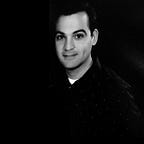Exterior and Interior Silence in Elie Wiesel’s Night
Elie Wiesel explores silence against the backdrop of exterior and interior antagonism in his novel Night. The novel’s paradigm continually returns to the subjectivity of the self as experienced through exterior and interior. In turn, Wiesel analyses exterior and interior silence as they relate to each other and their broader implications for society. Exterior silence is society ignoring atrocities for the sake of the status quo. For example, after the redolent anti-semitism that swept society and stripped the Jewish persona of any value in the prewar world, society, in general, remained silent about the systematic decimation of European Jews during the Holocaust. On the other hand, interior silence is the voice within that is silenced through danger, persecution, and violence. This essay will explore how Wiesel considers the role of exterior silence and interior silence in forming the notion of the self in Night.
The novel ends in acoustic silence. The main character looks in the mirror and “from the depths of the mirror, a corpse was contemplating me. The look in his eyes as he gazed at me has never left me” (Wiesel 115). These last two sentences inform the narrative of identity and the role of silence which the novel exposes throughout its pages. Thinking of the self from an exterior position the narrator cannot conceive of his exterior image as…
